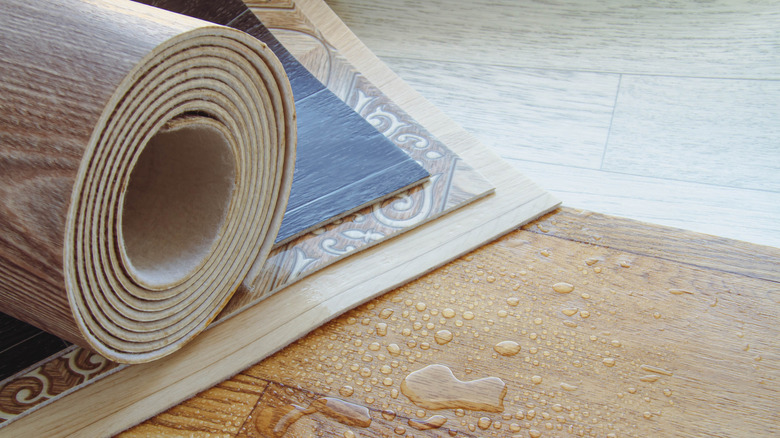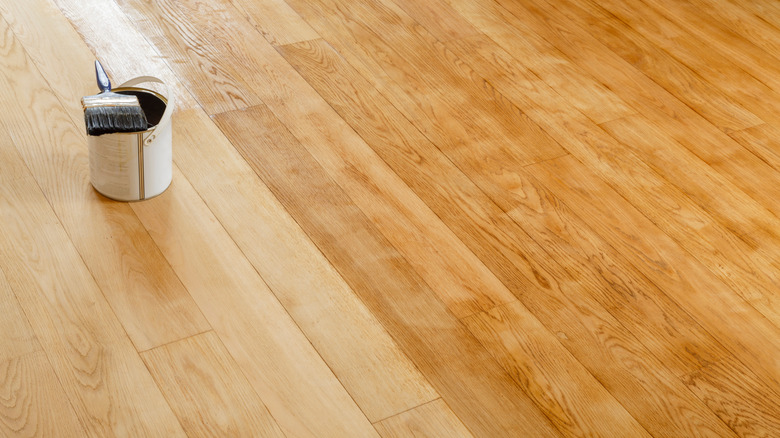The Disadvantages To Vinyl Sheet Flooring You Should Be Aware Of
Vinyl sheet flooring — you've probably heard of it. It's smooth, it's affordable, and it might even look decent in some rooms, but don't be fooled too quickly. If you're considering adding vinyl sheet flooring to your home, you might want to hear about its downsides before committing. Vinyl sheets are more likely to get damaged easily, they can suffer from discoloration, and once they're messed up, they are pretty much done for.
First, let's talk about damage. You might think vinyl sheets are tough since they handle water well and clean up easily, but there's a catch. Vinyl is soft, which means heavy furniture, sharp objects, or even the claws of an excited pet are its enemies. Drop a kitchen tool, push a chair back too hard, or let your pet go a little wild, and you could end up with dents, scratches or even punctures. Unlike hardwood or tile, which can be sanded and refinished, vinyl won't bounce back after damage. Those deep scratches and rips are here to stay, even if you're able to bring the shine back to your dull vinyl floors.
Then, there's the issue of discoloration. Vinyl sheet flooring might start with vibrant colors and clear patterns, but exposure to sunlight can cause it to fade over time, while spills and regular cleaning chemicals can cause certain areas to lose their original color. Over time, you might notice a patchy or uneven appearance. And finally, once vinyl sheet flooring is damaged or discolored, it's basically impossible to repair. Because it's a single, continuous piece, there's no easy way to replace the messed-up section without tearing up the entire sheet.
Alternatives to vinyl sheet flooring to consider
Thankfully, vinyl sheet flooring isn't the only option. There are some fantastic alternatives that offer the benefits of vinyl without the same set of limitations. First up: vinyl plank flooring. Plank tiles are designed to mimic wood floors, and they come in separate pieces that are easier to replace if damaged. Not only are plank tiles durable and water resistant, but they are also available in various textures and colors that fit any design.
Solid hardwood is another fantastic option, especially if you are looking for something that can truly stand the test of time. While it requires a bit more maintenance, solid hardwood can be refinished multiple times, meaning you can get rid of scratches and make it look new. Hardwood also adds value to your home in a way vinyl can't. Plus, with so many wood and finishes available, you can find something that fits your style perfectly.
Lastly, installing laminate flooring is a great middle-ground option. It's a step up from vinyl sheets in terms of durability and design, but it's still relatively affordable. Laminate is resistant to scratches, so it's a good choice for homes with pets or kids. It also comes in various styles, many of which look like real wood or stone. Like plank tiles, laminate comes in pieces, so you can replace individual boards if a part gets damaged.

